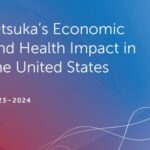
Sep 28, 2017 | News
“The tax benefit provided $338 billion in deductions in 2015, making it the most widely claimed itemized deduction that year, according to the most recently available IRS statistics. Fully repealing it would raise $1.4 trillion in revenue over a decade, according to an estimate by Alex Brill of the conservative-leaning American Enterprise Institute.”

Sep 13, 2017 | News
“Trump wants to bring that money back to the United States to spur jobs and growth, and he’s been aggressively pitching a plan to offer companies a large tax break if they bring all those dollars back to America soon. Under Trump’s proposal, companies would only have to pay a 10 percent tax on money they bring back — a process often called ‘repatriation’ — rather than the usual 35 percent. . . . The [George W. Bush] White House tried this once before, and the results were grim. . . . “

Sep 5, 2017 | News
“[Alex] Brill estimated that of all the money saved by local and state taxpayers with this deduction, 89 percent comes from those with incomes of $100,000 or higher. “In other words, the policy itself is highly regressive,” Brill told the Senate Finance Committee in prepared testimony Sept. 14. “It is available only to the minority of taxpayers who itemize their taxes (generally higher-income taxpayers) and is more valuable to taxpayers in higher tax brackets.””

Sep 1, 2017 | News
“[Alex Brill] emphasized that Congress’s tax reform timeline should not be dictated by attempts to ‘micromanage the quarter-by-quarter performance of the U.S. economy.’ Still, Brill acknowledged that it’s politically important to prioritize and maintain momentum on tax reform. ‘Moving slowly raises the risk that the process will never conclude,’ he said.”

Aug 28, 2017 | News
“‘I’m an advocate of a revenue-neutral carbon tax if the revenue raised is used to reduce or eliminate taxes that are most harmful to the economy,’ said Alex Brill of the American Enterprise Institute. ‘That would be a great trade,’ he said before adding that it is not something that is about to happen. ‘As a matter of politics, the environment for a carbon tax has not matured to the point that a majority of lawmakers are ready to embrace it,’ Brill said. ‘It would be premature for those who think a carbon tax is a good idea to try to chase the next legislative train,’ he said. And while there is a risk of trying to rush a carbon tax into the political process, there is also a risk in believing that a carbon tax is always going to be a long-term project, he added.”

Aug 18, 2017 | News
“Outside of the cost to local communities, experts have also linked the economic impact of the opioid crisis to rising insurance costs in both the private and public sector. A study by Matrix Global Advisors, a policy group based in Washington, D.C., shows that the cost of the opioid epidemic in Michigan costs every resident in the state about $84 a year. . . . ‘The healthcare costs associated with opioid abuse are the equivalent of an extra $84 in healthcare costs per Michigan resident every year,’ said Christy Robinson, Matrix Global Advisors director. ‘But determining who pays which part of the $84 is outside of the scope of our analysis.'”

















